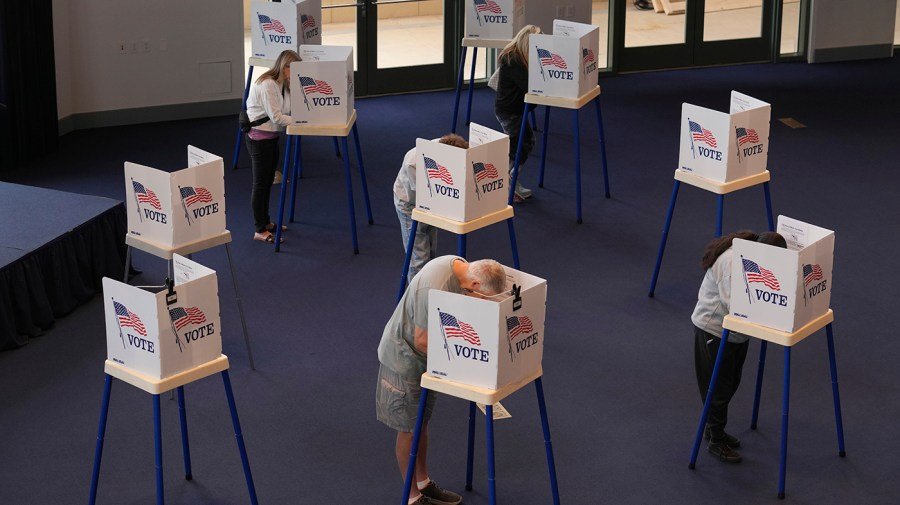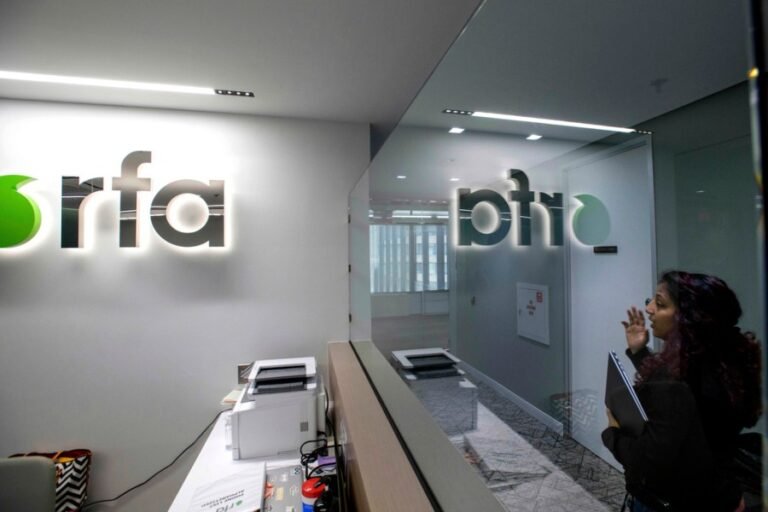
California voters next week will cast their ballots on whether the state will redraw its congressional districts, part of a battle between Republicans and Democrats across the country that could help decide the next majority in the House.
Voters who choose “yes” on Proposition 50 would allow the redrawn congressional district maps to go into effect in 2026 before new maps are drawn for the 2030 census, according to the California secretary of state’s website.
If voters say “no,” district maps will remain unchanged until the 2030 census.
The redistricting effort backed by California Gov. Gavin Newsom is a response to President Trump urging red states to redraw their districts in order to give Republicans an advantage in the 2026 midterms. After Texas announced redistricting efforts, Newsom said in August that California would do the same.
The stakes are enormous, in that a Democratic House would introduce a significant check on the second two years of Trump’s second term.
“California and Californians have been uniquely targeted by the Trump Administration, and we are not going to sit idle while they command Texas and other states to rig the next election to keep power — pursuing more extreme and unpopular policies,” Newsom said in a statement at the time. “This proposal would give Californians a choice to fight back — and bring much needed accountability and oversight to the Trump Administration.”
Polling shows that more than half of Golden State voters, at 56 percent, say they will vote for the measure on Nov. 4, according to a survey from the Public Policy Institute of California (PPIC). Of that 56 percent, 95 percent disapprove of how President Trump’s job performance and 86 percent approve of Newsom’s handling of the governorship.
Recent polling from CBS News/YouGov and Emerson College also show similar support for Proposition 50 from California voters.
Supporters of a drive largely spearheaded by the governor have raised $114 million to back the redistricting effort as of Oct. 18, according to state finance filings. Months of donations led Newsom to tell donors on Tuesday to stop giving, saying in an email to donors that the effort “hit our budget goals and raised what we need in order to pass Proposition 50.”
Though the fundraising is over, the campaign continues. Across his social media accounts, Newsom shared on Wednesday an advertisement with several prominent Democrats urging Californians to vote yes.
“California,” former President Obama says in the video. “With Prop 50, you have the power.”
“You have the power to stand up to Donald Trump,” Newsom says next.
Other Democrats featured in the video include Rep. Alexandria Ocasio-Cortez (N.Y.), Sens. Chris Murphy (D-Conn.), Elizabeth Warren (D-Mass.) and Alex Padilla (Calif.), along with Reps. Lateefah Simon (Calif.) and Jasmine Crockett (Texas).
Obama has also appeared alongside Newsom during a livestream on Oct. 22 urging voters to back the measure. In setting the stakes, the former president said, “Democracy is worth fighting for.”
“There’s a broader principle at stake that has to do with whether or not our democracy can be manipulated by those who are already in power to entrench themselves further,” Obama said. “Or whether we’re going to have a system that allows the people to decide who’s going to represent them.”
The measure’s opposition campaign, No on 50 – Stop Sacramento’s Power Grab was expected to raise $100 million. But the campaign, led by former House Speaker Kevin McCarthy (R-Calif.) has so far raised nearly $11 million, according to state records.
The anti-Proposition 50 movement’s most prominent face has been former Gov. Arnold Schwarzenegger (R).
He disagreed with Texas redrawing its maps and said on CNN’s “State of the Union” that the Lone Star State “started it” and “did something terribly wrong.” At the same time, he argued California should not join a fight he likened to a spreading wildfire.
“There’s this war going on all over the United States: Who can outcheat the other one?” he added.
“When you think about this trying to outcheat each other, rather than outperform each other, it’s all between Democrats and Republicans, and the ones that are getting left behind are the people,” Schwarzenegger later said in the interview.
PPIC, a nonpartisan agency, also found that Proposition 50 would not dramatically change the racial demographics, nor would it draw lines through various communities. Despite claims from opponents that Proposition 50 is an attempt at gerrymandering, registered Democrats currently outnumber Republicans nearly two-to-one, CalMatters reported.
The citizen commission that drew the new maps was composed of an equal number of five Democrats and five Republicans, along with four independents, CalMatters added.
These individuals were forbidden from taking party registration into account when redrawing California’s congressional map.
However, the Gerrymandering Project at Princeton University gave the new map a “F” and noted that it would give incumbents an advantage.


